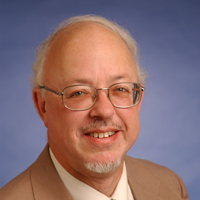Music School Director Emeritus Nicholas Isaacs earned an MA in Mediaeval History with additional studies in English and Philosophy from St. Andrews University, Scotland where he was also awarded the Annual Sawyer Memorial Prize for Music. He later gained his Performance Diploma from the Guildhall School of Music and Drama in London; while in London he studied piano with Edith Vogel and as a vocal accompanist participated in master classes with Gerald Moore and Pierre Bernac. Awarded a full scholarship through the English-Speaking Union for graduate studies in USA, he completed his Masters and Doctoral degrees in harpsichord and piano performance in 1986 at Stanford University, where he also won the 1980 University concerto competition.
Dr. Isaacs has performed frequently as solo and ensemble pianist in concert series and festivals in London, Edinburgh, Cardiff and throughout the UK and in the San Francisco Bay Area. Also active as a conductor of choral/orchestral performances in the UK and locally, he is currently pianist/organist at Bethany Lutheran Church, Menlo Park. His professional teaching experience includes a wide range of subjects – music history, music theory and analysis, aesthetics, coaching and conducting ensembles, world music survey, as well as piano instruction. He has been faculty member at Santa Clara University, Foothill College, and United World College of the Atlantic College, Wales, as well as being guest lecturer in the UK, USA and Canada. As a teacher and administrator, he has extensive experience in curriculum development with the International Baccalaureate and the Music Teachers’ Association of California and has received recognition from the Council for the Arts in Palo Alto (Mid-Peninsula) and Santa Clara County Board of Supervisors.
Dr. Isaacs is Director Emeritus of the Music School at CSMA.
